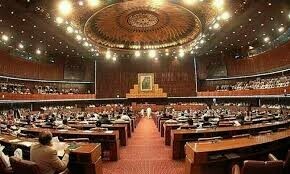Everyone was in alert mode. Junior doctors, consultants, nurses, patients, their attendants, ward boys and administration staff, were all present in the hospital. It felt like a real hospital, with phenyl-scented corridors, tip-toeing nurses, smiling doctors in freshly starched overalls and clueless attendants. Everything looked spick and span. To the unsuspecting eye, nothing was amiss but actually, it was all an elaborate ruse.
Welcome to the monkey business of private medical colleges and hospitals attached to them. The College of Physicians and Surgeons Pakistan (CPSP) is the authority that bestows accreditation to public and private hospitals for post-graduate training of medical graduates. The fee charged by CPSP for a one-time visit to accredit one specialty (e.g. medicine, surgery or pediatrics) is Rs125,000 and for accrediting more specialties is Rs45,000 for each department. The guidelines for accrediting a hospital for post-graduate training are available on the CPSP website. The CPSP reserves the right to refuse accreditation if the criteria is not fulfilled.
The Pakistan Medical and Dental Council (PMDC) registers the newly-opened public and private medical colleges. It is worth mentioning that CPSP is a degree-awarding institution while PMDC is a regulatory authority. There are 52 PMDC-recognised private medical colleges in Pakistan while 129 CPSP-accredited teaching hospitals function across the country.
In the private medical college mentioned above (which was in Sialkot), the hospital was real, the beds were real and some of the patients actually had genuine medical ailments. The rest was simply a facade. Most of the doctors present on duty were not employees of the hospital but had been siphoned off from the attached medical college. Senior doctors on the payroll of that hospital had finally showed up. Most of the ward boys and “male patients” were lower-level employees of the college, who had been “admitted” overnight with fake illnesses. The books had been cooked in line with the guidelines. The hustle and bustle in the hospital was unusual as the corridors used to be deserted in the preceding months. This was not the first time that such ruse was used to get registration/accreditation by authorities.
In Lahore, a private medical college on the city’s outskirts had lured medical students and doctors from other hospitals (and paid them) to “pose” during an important inspection by the PMDC. According to a member of the PMDC inspection team, private medical colleges and hospitals willing to attain accreditation by the governing authorities follow a recognisable pattern. They recruit senior teachers and doctors with considerable experience in accreditation matters. Thus, in addition to greasing palms of the higher-ups in the health establishment, “experienced” members of faculty are used to “game” the system.
In the larger scheme of things, this setup will harm the already creaking healthcare system present in Pakistan. Substandard doctors trained at substandard hospitals are going to drag the medical profession down its plinth.
This grave matter has received scant attention even in the age of screaming headlines and hourly news updates. On Jan 10, a local newspaper reported: ‘A judicial inquiry into the Dec 2010 ‘controversial’ go-ahead to 19 medical and dental colleges to offer admissions has found the then top bosses of the National Health Services, regulations and coordination ministry and the Pakistan Medical and Dental Council (NHSRC) to be on the wrong side of the law by and large.’
The report of that judicial inquiry revealed that ‘[the] then secretary Ghulam Rasool Aphan at the NHSRC Ministry, then deputy secretary Irshad Hussain and then director general [health] Dr Fayyaz Ahmad Ranjha were sitting together when they signed and approved 19 medical college files. It also appears that the then NHSRC secretary and director general [health] used the same pen.’
The inquiry report recommended de-recognising five of the 19 medical colleges involved in this “scheme” and adjustment of students in recognised medical colleges along with a moratorium on recognising new medical or dental colleges.
Sidestepping the rules has enabled the creation of doctor-manufacturing factories, established by the rich for the rich. It is perhaps the ugliest side of free-market economics. This manipulation not only upsets the socio-economic fabric of society, it also disturbs the established merit. Currently, anyone with enough wads of cash can send his/her offspring to a medical college, irrespective of merit. These rich kids can then acquire post-graduate degrees at substandard hospitals and endanger lives of innumerable patients.
Education in general, and medical education in particular, has become the latest trend in profiteering from peoples’ requirements. In the last decade, dozens of new medical colleges have been established across the country while the number of good quality teaching hospitals has remained stagnant. This growing disparity is going to hit the medical profession hard in the coming years, resulting in over-saturation and decline in professionalism.
The medical profession, once considered sacred, is in danger of getting muddled by the power of free-market capitalism. Asclepius wouldn’t have approved.














































Dear visitor, the comments section is undergoing an overhaul and will return soon.